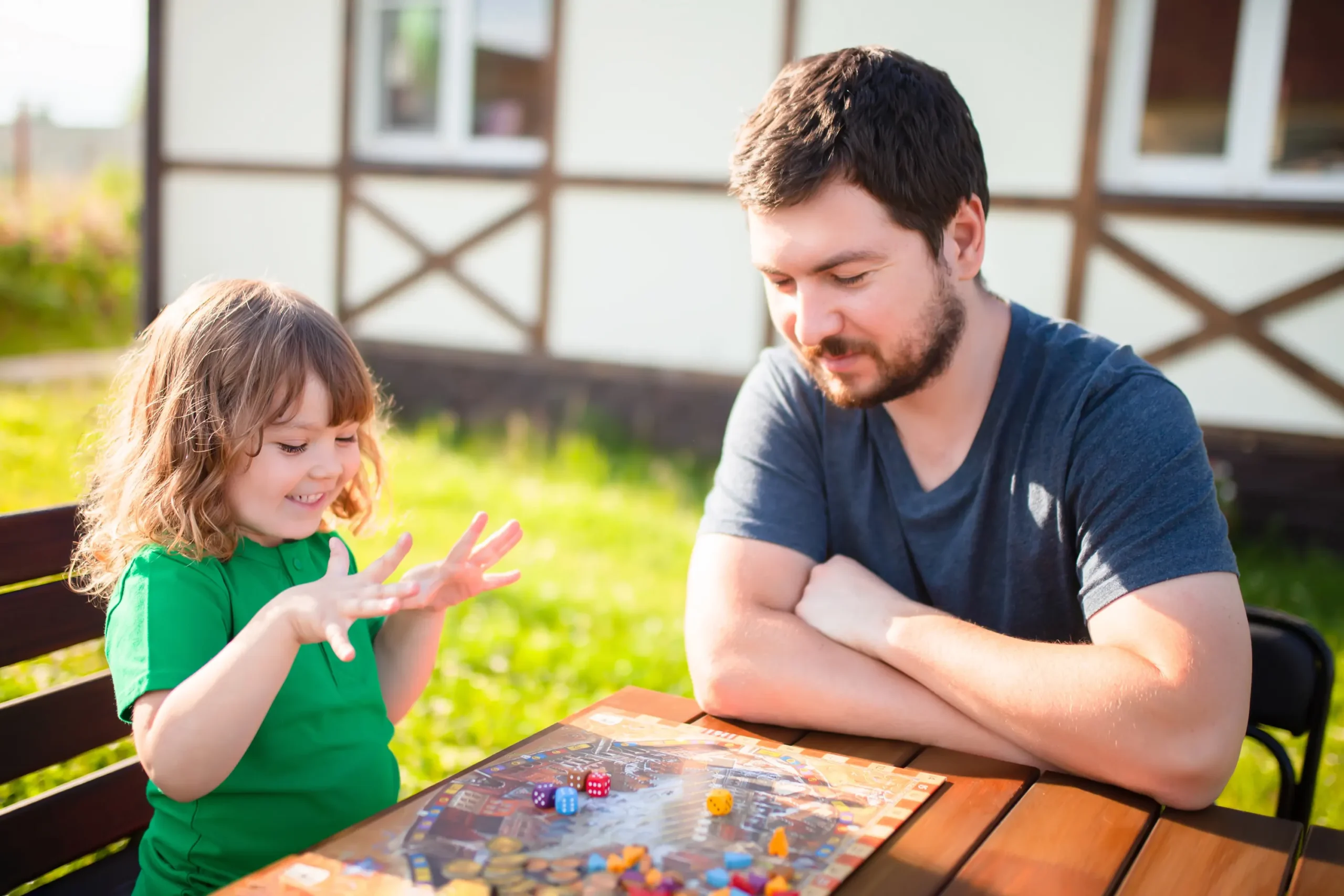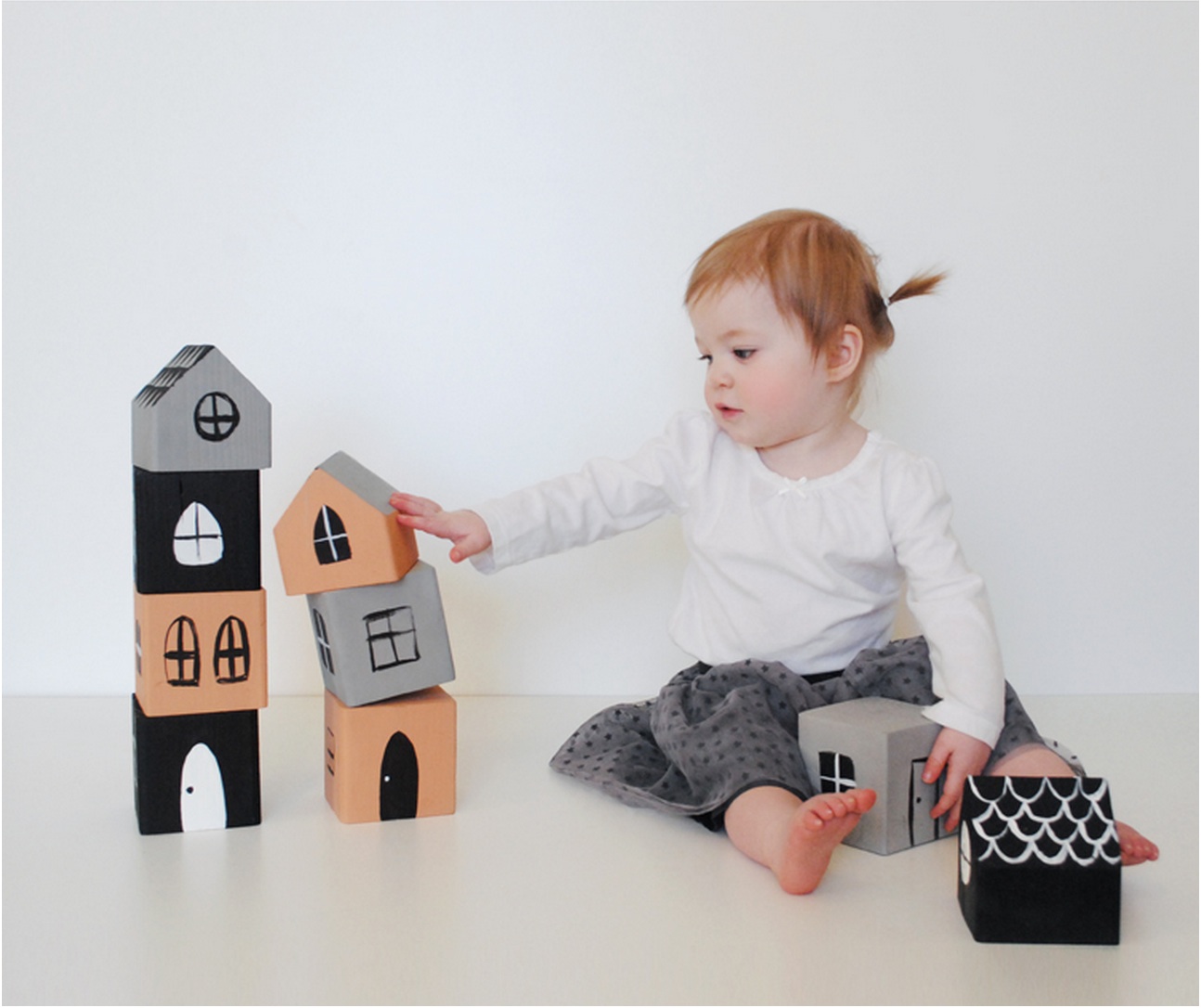
Encouraging Kids to Embrace Failure: Dad’s Growth Mindset
Kids often fear making mistakes. This fear can hold them back. Our article shows a dad’s way of teaching kids to see failure as a learning chance. Keep reading, it gets interesting.
Key Takeaways
- Kids with a growth mindset see challenges as opportunities to learn and improve. They understand that intelligence can develop through effort, persistence, and learning from mistakes.
- Teaching children to embrace failure helps them build resilience, creativity, and perseverance. It encourages them to try new things without fear of making mistakes.
- Parents play a significant role in fostering a growth mindset by modeling positive behaviors, praising effort over results, and creating an environment where it’s safe to make mistakes.
- Strategies like sharing stories of successful people who faced setbacks, emphasizing the power of “yet,” and engaging in play-based learning can encourage kids to view failure as a stepping stone rather than an endpoint.
- Developing a growth mindset from an early age has long-term benefits including enhanced problem-solving skills, emotional intelligence, self-awareness, and adaptability which contribute to success in various aspects of life.
Understanding the Concept of a Growth Mindset
A growth mindset emphasizes the belief that intelligence and abilities can be developed through dedication and hard work. Children with a growth mindset tend to embrace challenges, persist in the face of setbacks, and see effort as a path to mastery. This approach fosters resilience, curiosity, and a love for learning in kids.
Growth Vs. Fixed Mindset in Kids
Embracing a growth mindset in kids teaches them to view challenges as chances to grow. This is crucial for their learning and resilience. Here’s a comparison between growth and fixed mindsets in children, illustrated in an HTML table format:
| Growth Mindset in Kids | Fixed Mindset in Kids |
| View challenges as opportunities. | See challenges as threats. |
| Understand that effort leads to success. | Believe abilities are static. |
| Learn from feedback. | Avoid feedback. |
| Embrace mistakes as learning chances. | Feel threatened by mistakes. |
| Persist in the face of setbacks. | Give up easily when faced with obstacles. |
| Are motivated to master new things. | Lose interest when tasks get hard. |
This table outlines the key differences between growth and fixed mindsets. Kids with a growth mindset see hard tasks as steps towards getting better. They understand that effort and learning from mistakes are part of growing. On the other hand, kids with a fixed mindset avoid challenges and give up easily. They think their abilities won’t change. Teaching kids to adopt a growth mindset leads to better learning, problem-solving skills, and resilience. Encouraging this mindset requires setting attainable goals and showing that mistakes are normal. Critical parenting can stop a child from developing resilience, self-worth, and independence.
The Importance of a Growth Mindset
A growth mindset pushes kids to see challenges as chances to learn and grow. It shows them that their abilities can develop with effort, strategy, and help from others. Carol Dweck’s research found children with this mindset perform better because they don’t give up easily.
They understand failure is not a sign of unintelligence but a step towards mastering new skills. This approach fosters resilience and encourages kids to take on difficult tasks without fear.
The Role of Failure in Fostering a Growth Mindset
Encouraging Kids to Embrace Failure
Failure serves as a valuable learning opportunity, encouraging kids to confront challenges and develop resilience in the face of setbacks. By embracing failure, children can cultivate a growth mindset and build confidence in their abilities.
Learning Opportunities in Challenges and Failure
Challenges and mistakes often lead to the best learning experiences. They show kids that failure is not the end but a step toward success.
- Mistakes teach kids emotional resilience. When children face setbacks, they learn to manage their emotions better. This helps them in maintaining a positive mindset even when things don’t go their way.
- Every challenge is like a puzzle that stimulates brain development. Kids develop critical thinking as they figure out different ways to solve problems. This enhances their decision-making process over time.
- Failure encourages creativity and risk – taking. When kids realize that making mistakes is part of learning, they feel more confident to experiment and try new things without the fear of failure.
- Encountering obstacles builds perseverance and grit in children. They learn not everything comes easily and sometimes they have to work hard and persist through difficulties to reach their goals.
- Learning through challenges promotes self – awareness among kids. They start understanding their strengths, weaknesses, and how they can improve by stepping out of their comfort zones.
- Fostering a growth mindset through mistakes helps children appreciate effort over results. They learn that putting in hard work is more important than immediate success, building confidence in their abilities.
- Dealing with failure teaches kids about empathy and compassion by understanding others’ struggles and offering support, encouraging human interaction based on kindness and supportiveness.
- Challenges help children develop better emotional regulation skills by managing nervousness, frustration, or disappointment effectively, leading to improved emotional well-being overall.
- Facing failures prepares kids for real – life situations where things may not always go as planned, equipping them with the resilience necessary for personal and professional adversity later in life.
- Exploring new solutions during setbacks fosters knowledge expansion beyond traditional educational games or classroom settings, promoting lifelong learning driven by curiosity and creativity rather than fear of failing.
Through these experiences, children learn valuable lessons about themselves and the world around them, setting a strong foundation for academic success, ethical considerations in decision-making processes, and overall mental health improvement.
Encouraging Kids to Embrace Failure
Failure is not the end. It’s a step toward growth that helps kids develop a resilient mindset and embrace challenges as opportunities to learn.
- Show kids that every mistake is a chance to grow. Explain that every time they stumble, it’s like gathering puzzle pieces of knowledge for next time.
- Highlight stories of successful people who failed first. Share tales of inventors, scientists, and artists who didn’t give up despite setbacks, showing that perseverance leads to achievement.
- Use the power of “yet.” Tell your children they might not be able to do something now, but with practice and effort, they will eventually succeed.
- Normalize making errors by sharing your own. When you make a mistake, talk about it openly and what you learned from it, setting an example that it’s okay not to be perfect.
- Focus praises on effort rather than outcomes. Celebrate the hard work your child puts into tasks instead of just the success at the end, reinforcing the value of persistence.
- Set achievable goals together with your child. Work on setting goals that are just out of reach but achievable with some effort, making the journey toward them filled with learning moments.
- Embrace play-based learning where mistakes are part of the fun. Encourage activities like board games or role-playing games where trial and error lead to improved strategies and stronger problem-solving skills.
- Discuss feelings openly when faced with failure. Help your child articulate their emotions when they don’t succeed and strategize ways to approach similar situations differently in the future.
- Create a safe space for taking risks without fear of judgment or punishment.
Guide your children through simple practices like deep breathing or positive self-talk to calm their minds in facing obstacles.
By instilling these practices into daily life, parents can help their children see failures not as roadblocks but as stepping stones on their path to success and personal growth.
The Power of ‘Yet’ in Motivating Children
Encouraging kids to adopt a growth mindset involves helping them understand that their abilities can improve over time. By introducing the concept of “yet,” children learn to recognize that they may not have mastered a skill or subject, but it’s possible with effort and learning.
This simple word opens the door for possibilities and encourages children to persist through challenges, showing them that success is achievable with determination and perseverance.
Practical Ways to Foster a Growth Mindset in Kids
Teach kids about their emotions. Praise effort, not just results. Encourage perseverance and grit. Model growth mindset behaviors. Use constructive language. Create a safe environment for making mistakes.
Teaching Kids about their Emotions
Children’s emotional development is vital for their overall well-being. By teaching kids about various emotions, such as happiness, sadness, anger, and fear, we can help them recognize and manage their feelings effectively.
This understanding provides children with the tools to express themselves in healthy ways rather than resorting to negative behaviors when faced with strong emotions. Moreover, naming these emotions can empower children to seek support when needed and build resilience in navigating life’s challenges.
Additionally, fostering emotional intelligence in kids creates a foundation for healthy relationships and effective communication throughout their lives. Encouraging children to identify how they feel allows them to develop empathy towards others’ emotions, promoting positive social interactions and understanding within peer groups and broader communities.
Praising Effort, Not Just Results
Transitioning from teaching kids about their emotions, praising effort over results is crucial for nurturing a growth mindset in children. Instead of solely focusing on the outcome, it is essential to acknowledge and commend the hard work, determination, and perseverance that goes into achieving success.
By doing so, parents and educators can instill in children the value of resilience and dedication while fostering a positive attitude towards learning. This approach not only empowers kids to embrace challenges but also cultivates a sense of self-worth based on their efforts rather than just their achievements.
Such recognition encourages them to persist through difficulties and motivates them to continuously improve.
Parents who praise effort instead of just results are more likely to raise resilient individuals with enhanced problem-solving skills and increased confidence in their abilities. By emphasizing the process rather than just the outcome, adults play a pivotal role in shaping children’s beliefs about themselves and their capabilities.
Encouraging Perseverance and Grit
Encouraging perseverance and grit in kids is crucial for developing their resilience and determination. Here are some practical ways to foster these valuable traits in children:
- Encourage them to take on challenges that push their limits, helping them understand the value of hard work and perseverance.
- Acknowledge their efforts and progress, reinforcing the importance of resilience even when faced with setbacks.
- Teach problem – solving skills by guiding them through challenging situations, showing them that persistence pays off.
- Provide opportunities for them to make decisions independently, allowing them to learn from both successes and failures.
- Model a growth mindset by embracing challenges yourself and demonstrating how to overcome obstacles.
By encouraging perseverance and grit, parents can help children develop the resiliency needed to navigate life’s challenges with confidence and determination.
Modeling Growth Mindset Behaviors
Modeling a growth mindset involves demonstrating positive behaviors and attitudes that promote resilience and learning from mistakes. By embracing challenges, showing perseverance, and maintaining a positive attitude, parents can teach their children the value of effort and resilience. Here are some ways to model growth mindset behaviors:
- When faced with a challenge or mistake, openly discuss how to approach it positively.
- Encourage problem – solving by demonstrating how to break down tasks into manageable steps.
- Model taking risks and trying new things, even if they might lead to failure.
- Show self – compassion when facing setbacks and communicate the importance of learning from failures.
- Demonstrate a willingness to seek feedback, learn, and grow from constructive criticism.
These actions can help children develop a growth mindset and understand the value of perseverance and learning from experiences.
Using Constructive Language
When communicating with children, it is essential to use constructive language that focuses on growth and learning. By using words like “yet,” “progress,” and “improvement,” parents can encourage a growth mindset in their children.
Positive affirmations such as “I believe in your ability to figure this out” or “Mistakes help us learn and grow” can also foster a healthy approach to challenges and failures. This form of communication empowers children, instilling confidence in their abilities.
Moving on to Practical Ways to Foster a Growth Mindset.
Creating a Safe Environment for Making Mistakes
To foster a growth mindset in children, it’s crucial to create a safe environment where making mistakes is seen as an opportunity for learning and growth. Encouraging open communication, praising effort over perfection, and emphasizing the power of yet can help kids feel comfortable taking risks and trying new things.
By modeling resilience and positive self-talk, parents and educators can instill confidence in children, ultimately helping them embrace failure as part of their learning journey.
The Role of Parents in Cultivating a Growth Mindset
The Benefits of a Growth Mindset
A growth mindset brings enhanced learning abilities and improved problem-solving skills, leading to increased resilience in the face of failure. These benefits can contribute significantly to a child’s social and emotional development.
To learn more about how embracing a growth mindset can positively impact children, continue reading.
Enhanced Learning Abilities
Encouraging kids to embrace failure and try new things can significantly enhance their learning abilities. When children are willing to take risks and learn from mistakes, they develop resilience and a growth mindset that fosters improved problem-solving skills and increased cognitive development.
Positive self-talk and belief in their potential can boost kids’ confidence and motivation to learn, leading to enhanced learning abilities.
Teaching kids about setting goals provides them with the tools to advance their knowledge, thus enabling them to improve their learning abilities. Parents’ views on intelligence and failure have a direct impact on how children perceive their ability to learn, further influencing their learning abilities.
Improved Problem-Solving Skills
Fostering a growth mindset can lead to improved problem-solving skills in children. This mindset emphasizes the belief that dedication and education can enhance intelligence, leading to enhanced abilities for tackling challenges.
Research by Carol Dweck found that kids with a growth mindset were more successful. Teaching children to see challenges as valuable learning opportunities can help them develop resilience and adaptability.
This positive approach nurtures their ability to think critically, make decisions, and navigate complexities effectively. As kids embrace failure and learn from it, they become better equipped to tackle problems with confidence and creativity.
Increased Resilience in the Face of Failure
Teaching kids a growth mindset not only improves their problem-solving skills but also increases their resilience in the face of failure. By embracing challenges and mistakes as opportunities for learning, children develop the ability to bounce back from setbacks.
This resilience helps them navigate future difficulties with confidence and perseverance, ultimately fostering a positive attitude towards overcoming obstacles.
Encouraging a growth mindset in children empowers them to view failure as a natural part of the learning process instead of something to be feared or avoided. As they learn to approach setbacks with determination and adaptability, they become better equipped to handle adversity and emerge stronger on the other side.
Social and Emotional Benefits
A growth mindset contributes to enhanced social and emotional well-being in kids. It leads to improved self-awareness, resilience, and empathy, enabling children to navigate their emotions and develop healthy relationships with others.
Embracing a growth mindset also fosters self-regulation and trust in their abilities, underpinning positive social interactions with peers while nurturing a sense of belonging within the community.
Furthermore, fostering a growth mindset in children not only enhances their emotional intelligence but also promotes better decision-making skills and effective communication. This approach equips them with the confidence to express themselves openly while navigating complexities of social dynamics as they grow.
Long-Term Impact of a Growth Mindset
A growth mindset has a lasting impact on children, shaping their approach to challenges and failures throughout their lives. It fosters resilience, adaptability, and a positive attitude towards learning.
Children with a growth mindset are more likely to view mistakes as opportunities for growth rather than personal shortcomings. As they grow older, this mindset equips them with the ability to face obstacles with determination and perseverance.
Moreover, long-term studies indicate that individuals who develop a growth mindset in childhood tend to achieve higher levels of success in various aspects of life compared to those with fixed mindsets.
They exhibit stronger problem-solving skills, enhanced emotional intelligence, and greater confidence in navigating through an ever changing world. Embracing failure becomes a natural part of their journey towards excellence.
Conclusion
Empowering children to embrace failure is crucial for nurturing a growth mindset. Encouraging them to see mistakes as learning opportunities helps build resilience and perseverance.
Praising their efforts instead of just the outcomes fosters a positive outlook on challenges. Modeling a growth mindset behavior can have a lasting impact on children’s approach towards mistakes and setbacks.
Creating an environment where making mistakes is seen as a natural part of learning empowers children to develop confidence and adaptability.
FAQs
1. What is a growth mindset?
A growth mindset is believing that with effort and perseverance, you can improve your abilities and intelligence. It helps kids see failure as a chance to grow rather than a setback.
2. How can dads help their kids develop a growth mindset?
Dads can encourage their kids by praising the effort they put into tasks, not just the outcome. They can also share stories of their own challenges and how they overcame them, emphasizing the value of persistence and learning through play.
3. Why is it important for preschoolers to learn about failure?
Learning about failure at an early age helps preschoolers develop self-confidence, self-control, and resilience. It teaches them that making mistakes is part of learning and growing.
4. Can having a growth mindset affect friendships and social skills?
Yes! Kids with growth mindsets are more likely to embrace challenges like public speaking or overcoming shyness, which improves communication skills and builds stronger friendships.
5. How does encouraging a growth mindset at home affect academic achievement?
When parents promote a growth mindset by valuing effort over grades alone, children are more likely to embrace challenges in school, leading to higher academic achievement through improved problem-solving skills.
6. What activities support developing a growth mindset in children?
Activities that involve goal-setting, collaboration with siblings or peers on playgrounds or during storytelling sessions foster social emotional development while teaching valuable lessons on empathy, gratitude, and discipline.




